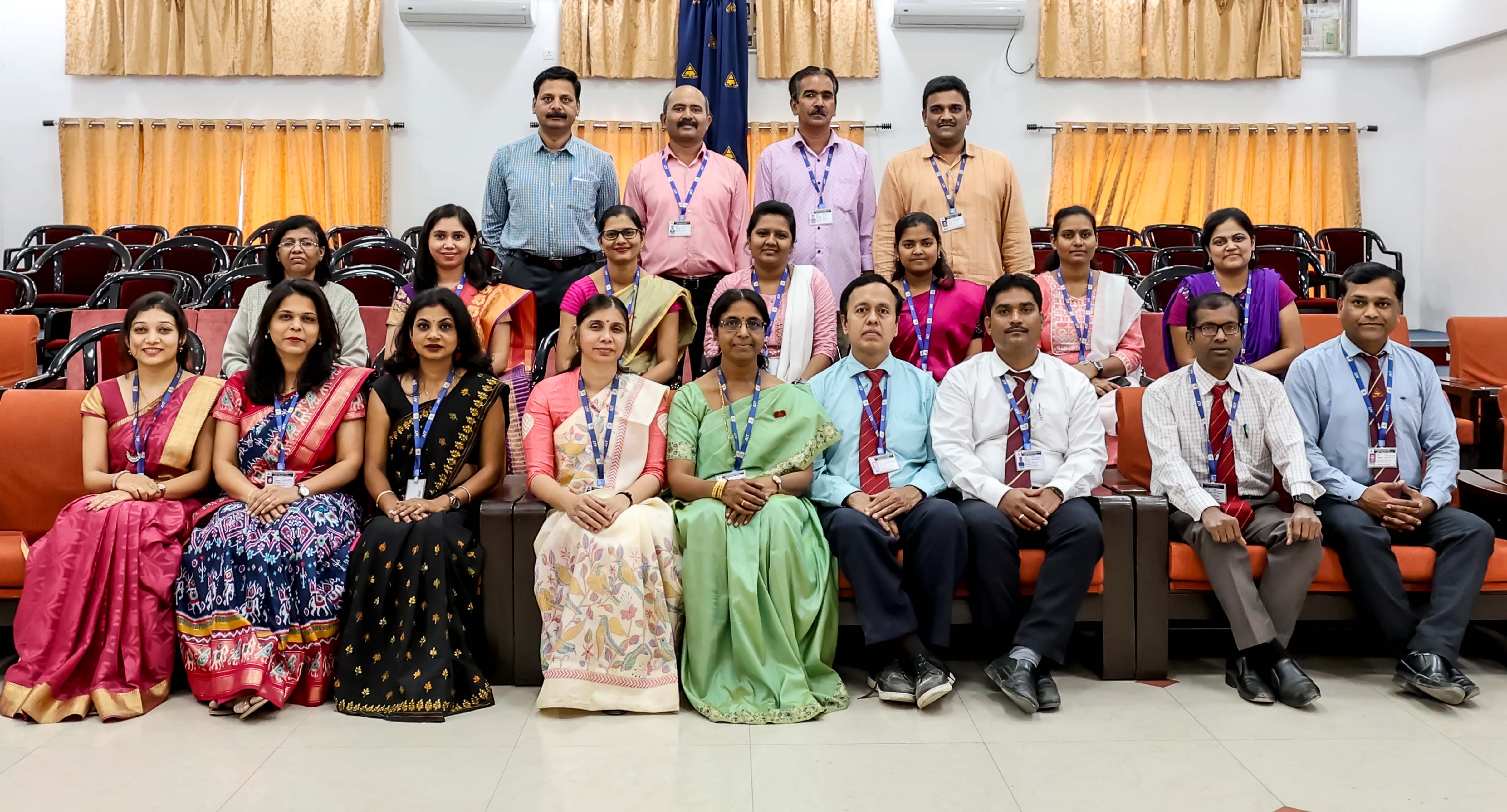The Program Educational Objectives (PEOs)
PEO1 : To produce graduates who would have developed a strong background in basic science and mathematics and to demonstrate technical competence in the fields of information Technology and develop solutions to the problems.
PEO2 : To produce graduates who would attain professional competence through life-long learning such as advanced degrees, professional registration, and other professional activities.
PEO3 :To produce graduates who functions ethically and morally in a multi-disciplinary environment in a global, societal, and environmental context.
Program Outcomes (POs)
1. Engineering knowledge: Apply the knowledge of mathematics, science, engineering fundamentals, and an engineering specialization to the solution of complex engineering problems.
2. Problem analysis: Identify, formulate, review research literature, and analyze complex engineering problems reaching substantiated conclusions using first principles of mathematics, natural sciences, and engineering sciences.
3. Design/development of solutions: Design solutions for complex engineering problems and design system components or processes that meet the specified needs with appropriate consideration for the public health and safety, and the cultural, societal, and environmental considerations.
4. Conduct investigations of complex problems: Use research-based knowledge and research methods including design of experiments, analysis and interpretation of data, and synthesis of the information to provide valid conclusions.
5. Modern tool usage: Create, select, and apply appropriate techniques, resources, and modern engineering and IT tools including prediction and modeling to complex engineering activities with an understanding of the limitations.
6. The engineer and society: Apply reasoning informed by the contextual knowledge to assess societal, health, safety, legal and cultural issues and the consequent responsibilities relevant to the professional engineering practice.
7. Environment and sustainability: Understand the impact of the professional engineering solutions in societal and environmental contexts, and demonstrate the knowledge of, and need for sustainable development.
8. Ethics: Apply ethical principles and commit to professional ethics and responsibilities and norms of the engineering practice.
9. Individual and team work: Function effectively as an individual, and as a member or leader in diverse teams, and in multidisciplinary settings.
10. Communication: Communicate effectively on complex engineering activities with the engineering community and with society at large, such as, being able to comprehend and write effective reports and design documentation, make effective presentations, and give and receive clear instructions.
11. Project management and finance: Demonstrate knowledge and understanding of the engineering and management principles and apply these to one's own work, as a member and leader in a team, to manage projects and in multidisciplinary environments.
12. Life-long learning: Recognize the need for, and have the preparation and ability to engage in independent and life-long learning in the broadest context of technological change.
Program Specific Outcomes (PSO's)
1. Graduate will demonstrate an ability to identify, formulate & solve computer science and Information Technology Engineering problems.
2. Graduate will demonstrate an ability to investigate, design and develop software programs, analyze & interpret the data and work on multidisciplinary projects.
3. Graduate who can pursue higher studies or get placed in computer science and IT based companies are also encouraged to become entrepreneurs.
Salient Features
1. Quality Intake
2. Experienced & Dedicated Faculty and Staff
3. Good Infrastructure & Environment
4. Received MODROB grant of Rs. 13,00,000 /- for Machine Learning Lab and Rs. 18,62,745 /- for Ubiquitous Computing and Vision Lab
5. Organizing regularly FDP’s & Conferences.
Faculty Contribution
- Major contribution of faculty towards redesigning in curriculum of University of Pune by attending SE &TE Syllabus Implementation workshops.
- All Senior faculty members have contributed in curriculum development.
- 06 Faculty members hold PhD degree and 04 faculty members are pursuing PhD.
- Contribution in organizing workshops, seminars, conferences and FDP.
- Managing ERP, LMS and Website at college level
- Active participation in institute Innovation Council activities
Infrastructure
- Laboratories are equipped with high end computers
- Smart Classrooms with modern teaching aids like LCD, internet connectivity
- Faculty rooms with computing & internet facility
- 6 Faculty rooms with computing & internet facility with Intercom
- High performance computer Up to 8 GPU/2x Intel Xeon CPU
Students Centric Activities
- Workshops, seminars, guest lectures and value added courses are organized
- Students are encouraged to take up projects from second year itself.
- All SE and TE students are members of CSI student chapter
- IEEE student branch
- Student internships
Laboratories and Software
The department has following laboratories:
- Programming Lab I
- Programming Lab II
- Programming Lab III
- Software Lab I
- Software Lab II / R&D LAB
- Hardware Lab
Software
- NetSim Component 1 Ethernet- Fast & Gigabit Arp
- Cisco Packet tracer
- Kaspersky Antivirus
- Oracle 10g
Result & Placement
- Consistently good result
- In terms of placement, IT students have a wide scope of opportunities in various companies like Microsoft, Infosys, Calsoft, Persistent, IBM, Wipro, Canbay, L & T Infotech, TATA Consultancy Services, etc.
- Higher average salary.
MOUs
- eSec Forte Technologies Pvt Ltd
- Forty two Technology Innovations Pvt. Ltd .
- Talent Sprint Pvt Ltd
- M/S Medyug Technology Pvt Ltd
- CopperCloud IOTech Pvt Ltd


